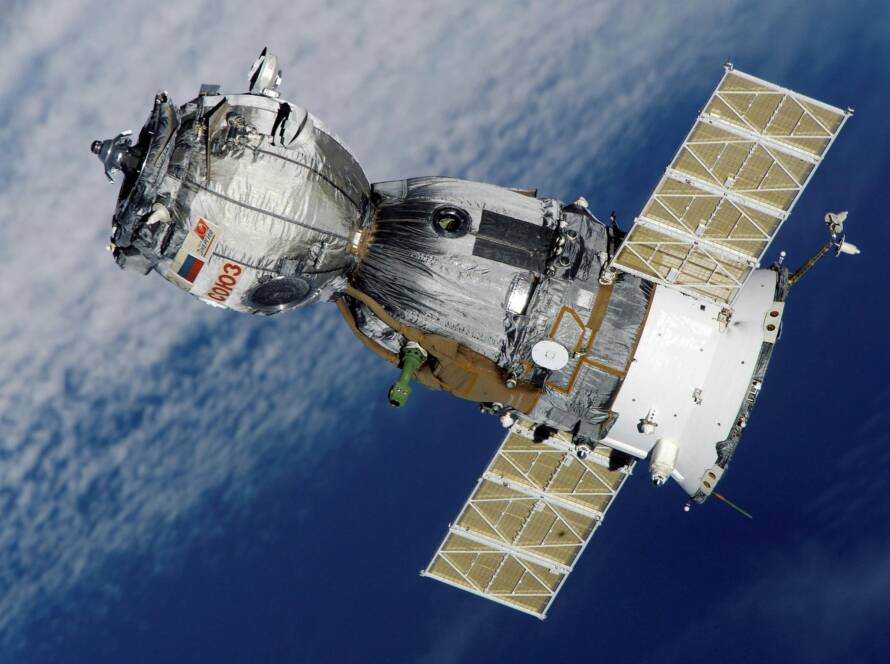What if we shot all our garbage into space? The idea sounds simple, even ingenious, but behind the fantasy are staggering costs, environmental risks, and safety concerns. Could this be the solution we’re looking for, or just another cosmic misstep?
The Earth generates more than two billion tons of waste each year, and only a small fraction is recycled. Some have proposed an audacious solution: launching our trash into space, as landfill space dwindles and environmental impacts mount. While intriguing, this idea faces insurmountable challenges, including immense cost, environmental impact, and safety risks.
The Staggering Cost of Space Disposal
The financial barrier to launching trash into space is one of the most significant challenges. Even with advancements in reusable rockets, such as SpaceX’s Falcon 9, sending waste to low-Earth orbit costs around $1,200 per kilogram.
According to John L. Crassidis, a professor of mechanical and aerospace engineering at the State University of New York at Buffalo, this makes the idea “not cost-feasible at all.” He explains that launching garbage “requires a lot of thrust and a lot of fuel,” which adds exponentially to the expense.
In addition to launch costs, the infrastructure needed to centralize and transport billions of tons of garbage to launch sites would add logistical and financial strain. Scaling such an operation is currently beyond any practical financial framework.
Environmental Consequences of Rocket Launches
Rocket launches are far from eco-friendly. Each launch emits large amounts of carbon dioxide and aluminum oxides, which damage the ozone layer and contribute to global warming. A study of a 2016 Falcon 9 launch revealed it released 116 tons of CO2 within the first 165 seconds of flight.
As Christopher Maloney, a research scientist at the NOAA Chemical Sciences Laboratory, pointed out, “The environmental impact of rocket launches has never been that big of a concern or focus because the number of rockets being launched every year was so small.”
However, with projections of a tenfold increase in launches over the next two decades, emissions could skyrocket, making space-based garbage disposal even less sustainable.
Dangers of Space Debris and Collisions
Launching trash into orbit could worsen the already critical problem of space debris. Low-Earth orbit is crowded with satellites and existing junk, and adding billions of tons of garbage increases the risk of collisions. Crassidis warns, “You’ve got to get it away from the Earth’s influence”—at least 22,000 miles from the surface—to ensure it doesn’t become hazardous debris.
Even if trash reaches orbit, the risk of Kessler syndrome looms. This scenario, first proposed by NASA scientist Donald Kessler, describes a chain reaction where collisions between space debris create more debris, eventually making Earth’s orbit unusable. Worse, improperly launched trash could fall back to Earth, with scientists already estimating a one-in-ten chance of rocket debris causing casualties within the next decade.
Why Other Celestial Bodies Aren’t Viable
Some propose dumping waste on the Moon, Mars, or even sending it to the Sun, but each option comes with significant flaws:
The Moon
While it lacks life or sensitive ecosystems, using the Moon as a landfill risks contaminating a site critical for scientific exploration and future colonization. Crassidis succinctly questions, “You want our junk to pile up on the Moon?”
Mars
As a potential site for human colonization, Mars must remain unpolluted. Sending trash there could compromise its habitability and scientific value. “Hopefully we’ll be colonizing [Mars],” says Crassidis. “You don’t want junk there too.”
The Sun
Firing garbage into the Sun may seem ideal, but it’s technically and financially unrealistic. Crassidis explains, “It’s just beyond cost viable. You can only launch a certain amount of stuff at a time, right?” The energy required to send payloads toward the Sun exceeds that needed for other destinations, making this plan infeasible.
Solutions Grounded on Earth
While the concept of sending garbage into space is intriguing, it remains impractical with current technology and priorities. Instead, Earth’s waste crisis must be addressed through:
- Enhanced recycling and waste reduction strategies.
- Innovative disposal technologies to reduce landfill dependency.
- Global cooperation to establish comprehensive waste management systems.
Space may offer exciting opportunities, but solving Earth’s waste problem requires solutions closer to home. As Crassidis and others point out, the key to dealing with waste is not to escape it, but to manage it sustainably and responsibly on our own planet.
Read Orignal Article at https://dailygalaxy.com/2024/11/why-sending-garbage-into-space-is-a-bigger-problem-than-you-think/


4 Comments
Alice
onvg WRM TbY npOPzcva EvmcqMV gSuz
Anaya3988
Good https://shorturl.at/2breu
John
uPJ ytFQ JJkjlcWb LeQ npGwLMi LIbHU QVPV
Brady4280
Good https://is.gd/N1ikS2